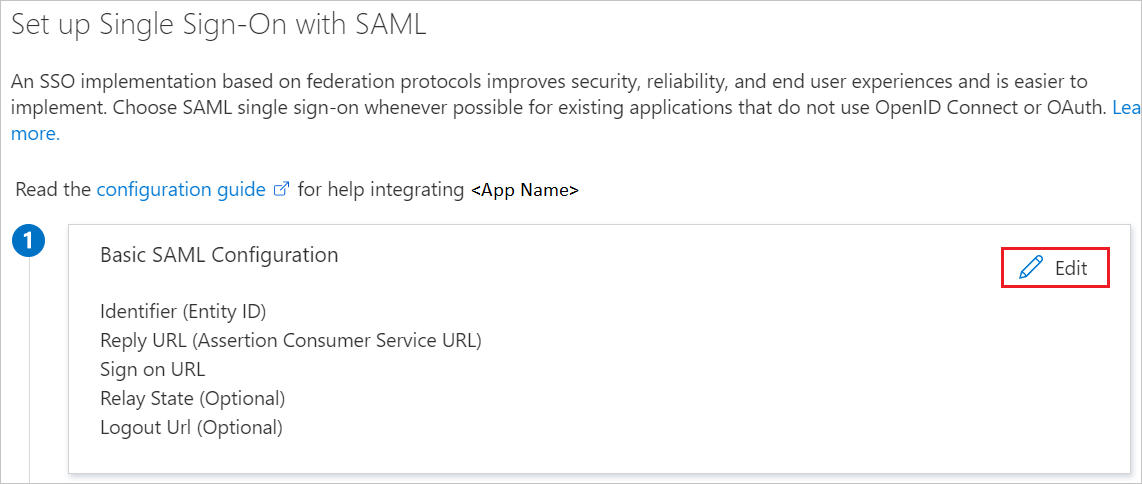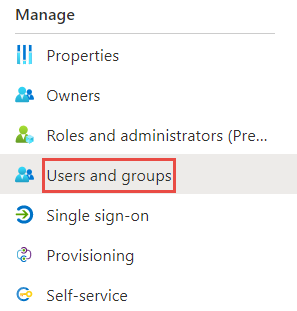Tutorial: Microsoft Entra single sign-on (SSO) integration with Elqano SSO
In this tutorial, you'll learn how to integrate Elqano SSO with Microsoft Entra ID. When you integrate Elqano SSO with Microsoft Entra ID, you can:
- Control in Microsoft Entra ID who has access to Elqano SSO.
- Enable your users to be automatically signed-in to Elqano SSO with their Microsoft Entra accounts.
- Manage your accounts in one central location.
To learn more about SaaS app integration with Microsoft Entra ID, see What is application access and single sign-on with Microsoft Entra ID.
Prerequisites
To get started, you need the following items:
- A Microsoft Entra subscription. If you don't have a subscription, you can get a free account.
- Elqano SSO single sign-on (SSO) enabled subscription.
Scenario description
In this tutorial, you configure and test Microsoft Entra SSO in a test environment.
- Elqano SSO supports SP initiated SSO
- Once you configure Elqano SSO you can enforce session control, which protect exfiltration and infiltration of your organization’s sensitive data in real-time. Session control extend from Conditional Access. Learn how to enforce session control with Microsoft Defender for Cloud Apps.
Adding Elqano SSO from the gallery
To configure the integration of Elqano SSO into Microsoft Entra ID, you need to add Elqano SSO from the gallery to your list of managed SaaS apps.
- Sign in to the Microsoft Entra admin center as at least a Cloud Application Administrator.
- Browse to Identity > Applications > Enterprise applications > New application.
- In the Add from the gallery section, type Elqano SSO in the search box.
- Select Elqano SSO from results panel and then add the app. Wait a few seconds while the app is added to your tenant.
Alternatively, you can also use the Enterprise App Configuration Wizard. In this wizard, you can add an application to your tenant, add users/groups to the app, assign roles, as well as walk through the SSO configuration as well. Learn more about Microsoft 365 wizards.
Configure and test Microsoft Entra single sign-on for Elqano SSO
Configure and test Microsoft Entra SSO with Elqano SSO using a test user called B.Simon. For SSO to work, you need to establish a link relationship between a Microsoft Entra user and the related user in Elqano SSO.
To configure and test Microsoft Entra SSO with Elqano SSO, complete the following building blocks:
- Configure Microsoft Entra SSO - to enable your users to use this feature.
- Create a Microsoft Entra test user - to test Microsoft Entra single sign-on with B.Simon.
- Assign the Microsoft Entra test user - to enable B.Simon to use Microsoft Entra single sign-on.
- Configure Elqano SSO - to configure the single sign-on settings on application side.
- Create Elqano SSO test user - to have a counterpart of B.Simon in Elqano SSO that is linked to the Microsoft Entra representation of user.
- Test SSO - to verify whether the configuration works.
Configure Microsoft Entra SSO
Follow these steps to enable Microsoft Entra SSO.
Sign in to the Microsoft Entra admin center as at least a Cloud Application Administrator.
Browse to Identity > Applications > Enterprise applications > Elqano SSO > Single sign-on.
On the Select a single sign-on method page, select SAML.
On the Set up single sign-on with SAML page, click the edit/pen icon for Basic SAML Configuration to edit the settings.

On the Basic SAML Configuration section, enter the values for the following fields:
a. In the Sign on URL text box, type a URL using the following pattern:
https://<SUBDOMAIN>.elqano.comb. In the Identifier (Entity ID) text box, type a URL using the following pattern:
elqano-<ENVIRONMENT>Note
These values are not real. Update these values with the actual Sign on URL and Identifier. Contact Elqano SSO Client support team to get these values. You can also refer to the patterns shown in the Basic SAML Configuration section.
In the SAML Signing Certificate section, click Edit button to open SAML Signing Certificate dialog.

In the SAML Signing Certificate section, copy the Thumbprint Value and save it on your computer.

On the Set up Elqano SSO section, copy the appropriate URL(s) based on your requirement.

Create a Microsoft Entra test user
In this section, you'll create a test user called B.Simon.
- Sign in to the Microsoft Entra admin center as at least a User Administrator.
- Browse to Identity > Users > All users.
- Select New user > Create new user, at the top of the screen.
- In the User properties, follow these steps:
- In the Display name field, enter
B.Simon. - In the User principal name field, enter the username@companydomain.extension. For example,
B.Simon@contoso.com. - Select the Show password check box, and then write down the value that's displayed in the Password box.
- Select Review + create.
- In the Display name field, enter
- Select Create.
Assign the Microsoft Entra test user
In this section, you'll enable B.Simon to use single sign-on by granting access to Elqano SSO.
Sign in to the Microsoft Entra admin center as at least a Cloud Application Administrator.
Browse to Identity > Applications > Enterprise applications > Elqano SSO.
In the app's overview page, find the Manage section and select Users and groups.

Select Add user, then select Users and groups in the Add Assignment dialog.

In the Users and groups dialog, select B.Simon from the Users list, then click the Select button at the bottom of the screen.
If you're expecting any role value in the SAML assertion, in the Select Role dialog, select the appropriate role for the user from the list and then click the Select button at the bottom of the screen.
In the Add Assignment dialog, click the Assign button.
Configure Elqano SSO
To configure single sign-on on Elqano SSO side, you need to send the Thumbprint Value and appropriate copied URLs from the application configuration to Elqano SSO support team. They set this setting to have the SAML SSO connection set properly on both sides.
Create Elqano SSO test user
In this section, you create a user called B.Simon in Elqano SSO. Work with Elqano SSO support team to add the users in the Elqano SSO platform. Users must be created and activated before you use single sign-on.
Test SSO
In this section, you test your Microsoft Entra single sign-on configuration using the Access Panel.
When you click the Elqano SSO tile in the Access Panel, you should be automatically signed in to the Elqano SSO for which you set up SSO. For more information about the Access Panel, see Introduction to the Access Panel.
Additional resources
Tilbakemeldinger
Kommer snart: Gjennom 2024 faser vi ut GitHub Issues som tilbakemeldingsmekanisme for innhold, og erstatter det med et nytt system for tilbakemeldinger. Hvis du vil ha mer informasjon, kan du se: https://aka.ms/ContentUserFeedback.
Send inn og vis tilbakemelding for